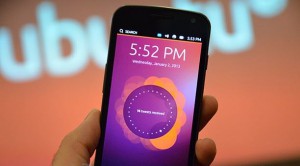Share This
Related Posts
Tags
Ubuntu Phone
By Anca Gagiuc on May 8, 2015 in Technology
 Canonical’s first Ubuntu-based smartphone has finally been released – BQ Aquaris E4.5 Ubuntu Edition is available in the European Union for €170 ($190). Chinese distribution is also underway – a date for U.S. release hasn’t yet been publicized.
Canonical’s first Ubuntu-based smartphone has finally been released – BQ Aquaris E4.5 Ubuntu Edition is available in the European Union for €170 ($190). Chinese distribution is also underway – a date for U.S. release hasn’t yet been publicized.
The technical specifications of the phone are far from exciting, especially after the much talked about Ubuntu Edge – the device that behaves like a phone until it’s plugged into a keyboard and monitor, at which point becomes a fully-fledged Ubuntu desktop. The Ubuntu Edge crowdfunding campaign failed to pique the interest of major manufacturers, but made people talk about Ubuntu Mobile.
Aquaris E4.5 is a modest, mid-tier handset from Spanish manufacturer BQ, more popular for developing e-readers. The device has a 4.5-inch screen, 1GB RAM, a quad core A7 chip running up to 1.3Ghz, 8GB of on-board storage – expandable through a microSD slot, 8MP rear camera and 5MP front camera, plus a dual-SIM slot. The battery feeding the phone is a LiPo 2150mAh. Basically, it’s the same phone used by Google, but pre-loaded with Ubuntu’s mobile software.
The scope of the phone is… Scopes!
Here is where things become interesting. Ubuntu has created a unique platform endowed with all a mobile experience should be: seamless, effortless, uncluttered interface between user and hardware – through Scopes.
Scopes represent universal search; these are a series of themed cards that compile content and which the user swipes between to navigate through the functions of the phone, with the app icons hidden to the side of the screen, or placed together on a single Scope card. The examples used refer to ‘Today’ card – it contains info such as weather and calendar, to ‘Nearby’ card – it contains location-specific local services, to ‘Music’ or ‘News’. Basically, with scopes, the user can have a home screen dedicated to various categories.
The standard navigation buttons on the phone found on most devices have been removed and to get around the places on the phone the user only needs to know a few gestures. More exactly, swipe from the left to see the Launcher (and launch the favorite apps), swipe from the right to see all running apps, swipe from the top to access notifications and phone settings, and swipe from the bottom to view controls.
In fact, Scopes are Ubuntu’s secret weapon as they replace Apps. Knowing that is rocking up late to a party well underway, Ubuntu ruptures familiarity and changes the DNA of the software. Starting from the premise that a richer user experience is needed on mobile, something that goes beyond redesigning the apps grid, Ubuntu Phone wants to present the first truly mobile first user experience – through Scopes.
Unlike apps, that you open, find the information you need and then close, scopes are like relevant pages from places on the web you pin to your noticeboard. Local weather forecast, eBay shopping, or any other thing, regardless of content type or source, it can be present on your phone’s display. From what is seems, apps still have a role in the Ubuntu Phone story, but it’s no longer a lead one.
Some have already fallen in love with the new platform, and it’s not difficult to understand why. For others, Canonical’s choice to pair it with a mediocre hardware headset enraged them. Fans fear that this decision will make the brilliant platform be easily forgotten. On the other hand, perhaps this is Canonical’s way of testing the waters, investing little in the hardware to get the taste of some flavorful software. Winning people over will not be easy, but the first big step has been taken by Canonical and what happens next will be interesting to observe.
